The Beatles / 1964 US Albums in Mono – reviewed
8LP vinyl box is out today
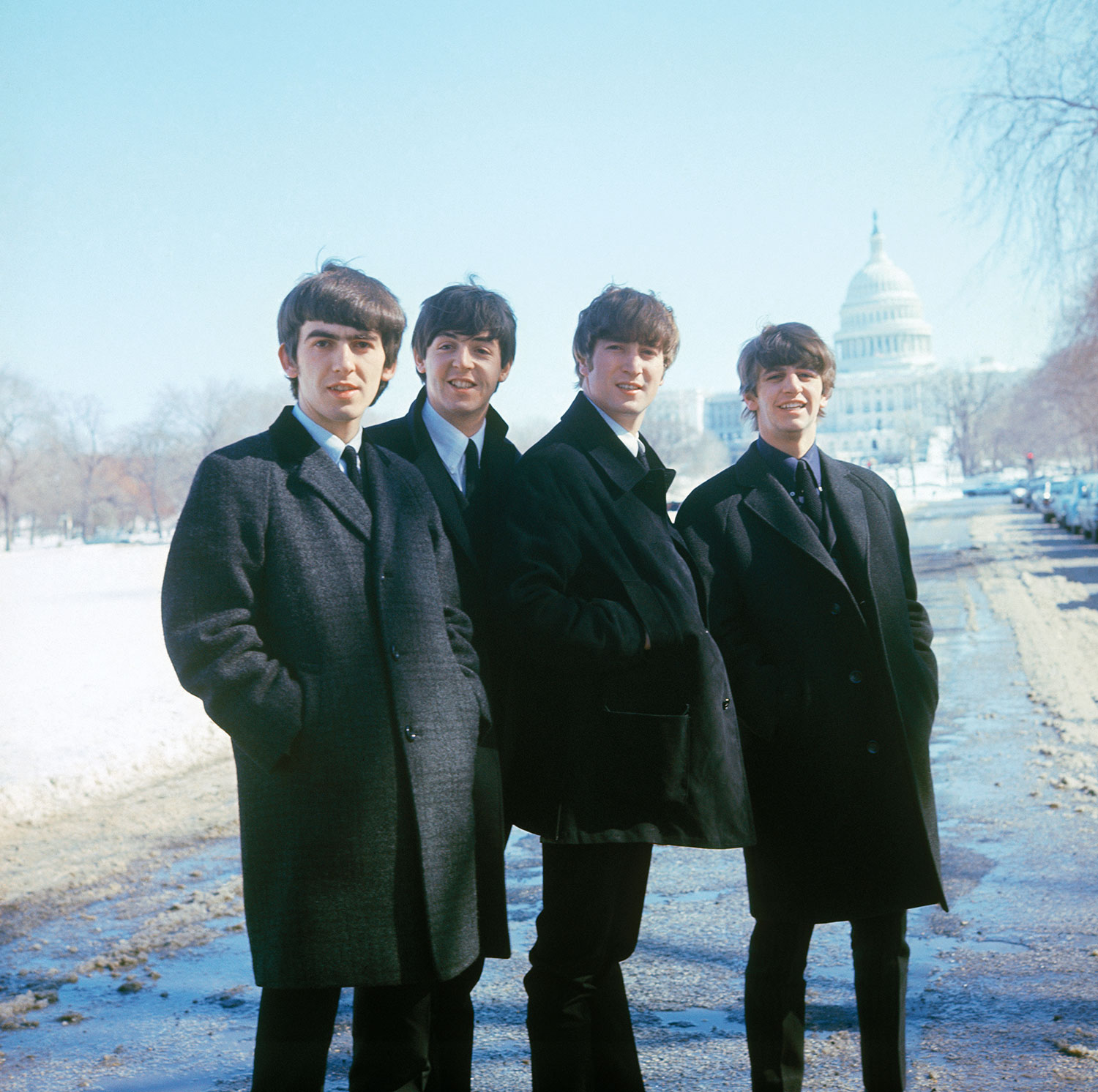
The Beatles 1964 US Albums in Mono, the fab four’s handsome new 8LP vinyl box set, contains seven (yes, seven) Beatles albums released in the US between February 1964 and March 1965 … and they’re not the ones you might think they are. There’s no Please Please Me, no With The Beatles, no Beatles For Sale. There is A Hard Day’s Night, but it’s not the Hard Day’s Night you know. This is a parallel universe version of the Beatles story. One with its own titles, tracklistings, cover artwork and even its own sound. Contained in this sturdy and rather smart box, lovingly replicated and restored, is the story of how the United States first heard the most important pop band of all time.
First some necessary backstory. When record company A&Rs get together around the campfire, as a hush falls and the ghost stories begin, there’s always one tale that’s left til last. The most chilling of all. It’s the story that has record execs waking up at 4am, drenched in sweat and numb with dread: the story of Dick Rowe, the Decca executive who turned down The Beatles because he thought guitar bands were on the way out. No-one, but no-one wants to be remembered as the next Dick Rowe. There is, however, another figure in the legend of the Fab Four whose blind spot was, if anything, even worse. Someone who saw the early Beatles at their height and heard them at their best and still said no. That man was Dave Dexter Jr, the Capitol Records exec who saw Beatlemania unfolding across the pond, heard the original songs Lennon and McCartney were knocking out and decided that none of it would wash with an American audience. It wasn’t to be his last mistake.
Capitol had been partially acquired by EMI some years earlier, meaning it was allowed first refusal on the US release of any of EMI’s British acts. It was Dave Dexter, the label’s head of foreign product, who had the ultimate say on whether those songs would see release under the iconic rainbow swirl of a Capitol disc. George Martin had, naturally, approached Dexter about The Beatles as soon as ‘Please Please Me’ had hit number one (or number two, depending on which chart you were looking at) at home. Dexter turned it down. The word that came back, via the label’s New York office, was “we don’t think The Beatles will do anything in this market”. It happened again with ‘From Me To You’ and again, probably most shockingly, with ‘She Loves You’. By that point The Beatles were not only the most successful pop phenomenon in British history, they were knocking out gem after gem. Dexter, a jazz fan who had signed Frank Sinatra and had no great enthusiasm for modern pop, was convinced he understood the American market implicitly, and that market had no place for The Beatles. George Martin and Brian Epstein were forced to huck the Fabs around the country’s smaller independents to get their product to market. The first two singles came out on Chicago-based Vee-Jay records, ‘She Loves You’ on New York label Swan. Neither label had the clout to break unknown artists, and three of the most important singles in British music history sank without a trace. It took Epstein turning up in New York in person and forcing ‘I Want To Hold Your Hand’, a record precision-tooled for the American market, into the hands of label bosses for Dexter to be overruled, and even then it was with very little optimism. The single was scheduled, essentially as a courtesy, for 1964’s post-Christmas January deadzone.
And then something extraordinary happened. Early that December, American radio, completely independently of any plugging from Capitol, started to pick up on ‘I Want To Hold Your Hand’, first from a handful of cool, influential DJs who kept their ear to the ground in the UK, then spreading across the US to mainstream pop stations. The Beatles had caught the imagination of a country in some desperate need of distraction following the assassination of JFK. Capitol was caught completely off guard and production of the single was ramped up quickly, with the label taking over RCA and CBS’ pressing plants to meet demand and workers putting in hours around the clock across Christmas ahead of the song’s release. Capitol had initially agreed to a pressing of 200,000 records, something which was considered pretty risky. By the end of January ‘I Want To Hold Your Hand’ had sold 1.5 million copies. Quite naturally, Capitol, having had definitive proof of concept, now wanted an album. Unfortunately, Dave Dexter had mucked that up as well.
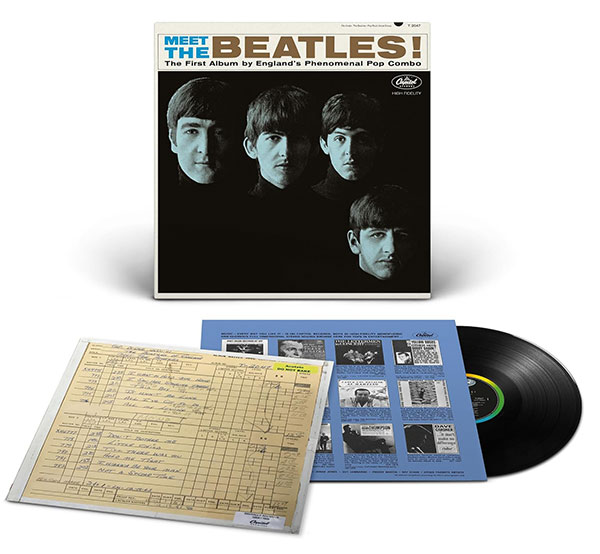
The first Beatles album,1963’s Please Please Me, had ended up at Vee-Jay records, having been summarily rejected by Dexter. Vee-Jay reworked it as Introducing … The Beatles, and planned a July 1963 release — though the release was cancelled in the end due to cash flow issues at the label. It was reactivated as Beatlemania finally crossed the Atlantic in early 1964 and what was previously another album by an overseas band became an obvious cash cow. Capitol, who now considered themselves to be the Beatles’ US label, responded by reworking the new UK Beatles album, With The Beatles, as Meet The Beatles and treating it as the band’s debut. By 29 February, Meet The Beatles was the Billboard number one album, and despite some serious attempts by Capitol to block its release, Vee-Jay’s Introducing … The Beatles was at number two. Over on the Hot 100 singles chart, ‘I Want To Hold Your Hand’ held the top spot, while at number two was Swan records’ release of ‘She Loves You’. All of this as the band was only just beginning their now-legendary first visit to the US.
This is where The Beatles 1964 box set takes up the tale, through a filter of commercial pragmatism and sonic tinkering. Each record here is meticulously reproduced, from Capitol’s original reworked artwork down to Dave Dexter Jr.’s new production touches — particularly that signature Capitol echo chamber reverb that makes George Harrison sound like he’s singing ‘Everybody’s Trying to Be My Baby’ from the bottom of a well. It sounded pretty ropey in stereo, but in mono it works.
While recent Beatles reissues under Giles Martin have reimagined the canonical albums for modern ears, this set takes an opposite, equally valid approach: presenting these historical artefacts in their highest possible fidelity. It’s preservation rather than renovation, capturing exactly how these records sounded to American teenagers in 1964, with new clarity compensating for better audio systems and the dulling of familiarity.
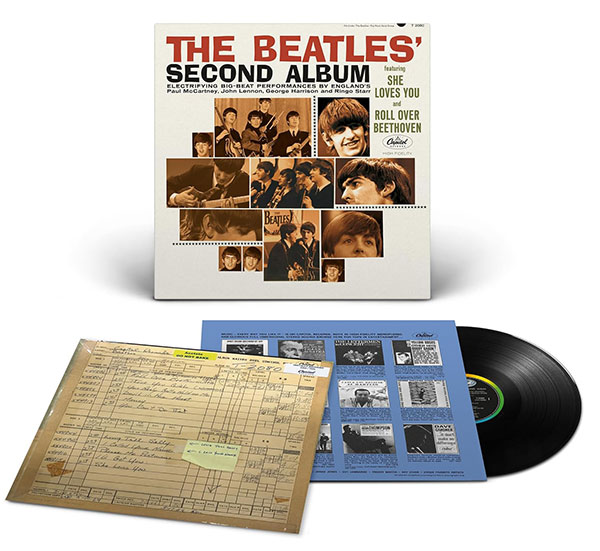
The Beatles’ Second Album (actually their third in the US) is the jewel here. What should be a cynical cash-grab – cobbled together from singles, B-sides, and With The Beatles leftovers – becomes a fierce R&B rocker that arguably captures the raw energy of the early Beatles better than their “proper” albums. It’s one of the moments when Capitol’s punchier EQing works to our advantage. The sequence of ‘Roll Over Beethoven,’ ‘Thank You Girl’, and ‘You Really Got A Hold On Me’ feels like a front-row seat at the Star Club, while McCartney ripping through ‘Long Tall Sally’ shows him at his most vocally unhinged, just as ‘Twist ‘N’ Shout’ had for Lennon.
The Hard Day’s Night situation perfectly illustrates the feeding frenzy around the band. United Artists, holding the rights to the film of the same name, rushed out their own soundtrack, augmenting the Lennon/McCartney originals included in the picture with George Martin orchestral filler before Capitol could respond. Respond it did, though, putting out another LP, Something New a month later, which somehow justifies its title by featuring the bits of the UK Hard Day’s Night album that UA couldn’t use, while recycling material from the Long Tall Sally EP and even tacking on ‘Komm, Gib Mir Deine Hand,’ the German language version of ‘I Want to Hold Your Hand’. By the end of August, A Hard Day’s Night was at number one, Something New at number two, Second Album at number five, Meet The Beatles at 25 and Introducing … The Beatles at 31. Five albums of material, all released in the same year. And all, genuinely, excellent. It was unprecedented. Introducing, of course, isn’t included in this set, however by early 1965 Capitol had finally managed to kick Vee-Jay out of the picture, putting together their own version — The Early Beatles, a Dexterised mashup of Introducing and Please Please Me, which happily is here.
Before that, though, Capitol had more twelve-inch Beatle product to shift. Beatles 65, actually released in December of 64, retooled the band’s latest UK album, Beatles For Sale, adding some leftovers from A Hard Day’s Night and the ‘I Feel Fine’ single (leaving Dexter enough material held over to cobble together Beatles VI the following June. We’ll presumably get that in a box set next year with Help, Rubber Soul and Yesterday and Today). By the end of the year there were six Beatles LPs on the Hit Parade. Five of them had sold over a million copies each. Also that month, and selling 500,000 copies in its own right, came The Beatles’ Story, a documentary double album. It’s a charming piece of period fluff released to plug a gap in the Christmas schedule left when the band and Martin refused to sanction a live album. Its smart-alec-smooth narration includes unintentionally poignant moments (describing George Harrison as being “born with an amused smile on his face, and he will probably end his life in the same way”), but offers little substance. You won’t listen to it twice — presumably why it’s the only disc in this set to not be getting an standalone release. Its existence perfectly encapsulates the American record industry’s determination to squeeze every possible penny from Beatlemania. Given it’s the one piece of “exclusive” content here, those rules seem to still be in play.
There’s a great narrative to this set, and it’s done real justice. Dexter’s heavy-handed compression and reverb – initially added to make the records “sound more American” – are preserved while benefiting from far more sonic care and attention than they got the first time around. The result honours both historical accuracy and audiophile standards. That’s not an easy balance to strike. These songs also sound great in mono, which makes them a nice, distinctive addition to the recent modernised Beatles vinyl reissues. The decision to not muck about with the weird stereoscopy tricks of the early 60s was a good one. The recordings sound warm and personal, with enough of a difference in character from the versions we’re more familiar with to keep us interested. You hear them anew, all over again.
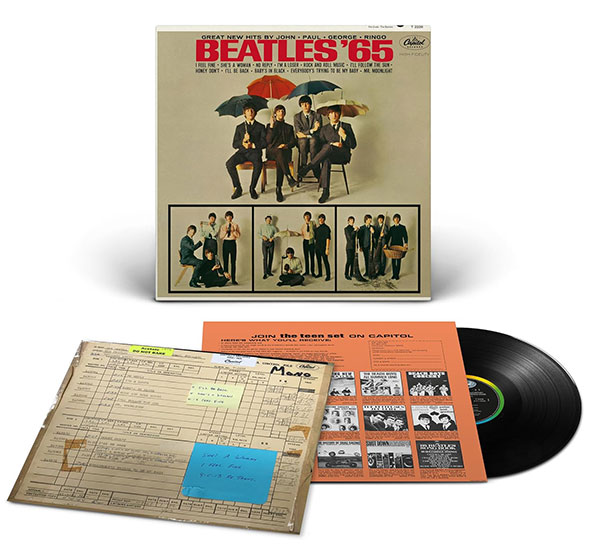
Dave Dexter’s story ended much as it began— with fundamental incomprehension. After being effectively demoted for not securing The Beatles for Capitol exclusively at the get-go, he remained unrepentant to the end, penning a surprisingly bitter Billboard article in the week following John Lennon’s death in 1980 in which he aired a lot of dirty laundry about Lennon’s attitude toward him during the Capitol era. The next week the magazine was flooded with angry responses. Yet his inadvertent creation of this parallel Beatles narrative, lovingly preserved here, gives us a fascinating document of how America first encountered the most important band of the 20th century.
The 1964 US Albums in Mono set succeeds on multiple levels — as historical document, as audiophile pressing, and as an alternative view of the Beatles’ early years. These might not be the “canonical” versions of these albums, but they’re the ones that soundtracked the British Invasion for millions of Americans. In preserving them with such care and attention to detail, we’re given a fascinating historical document and a thoroughly enjoyable listening experience that stands apart from the more familiar UK releases. Oh, and did we mention it also contains a couple of dozen of the best pop songs ever recorded and serves as a solid document tracking the most important band there’s ever been during a key point in their development? To be honest, that should go without saying.
The price tag isn’t light – £250, give or take – but the contents are glorious, handsomely presented and lovingly put together, even if this is just a re-presentation of songs you’ve known forever and own already. If it feels like the Beatles brand is being squeezed for every drop of cash here, well … if there’s one thing this box set, documenting seven albums released in a single year by a label wringing every drop of commercial potential from a cultural phenomenon, tells us … it’s that some things never change.
A great story, then, well told.
Review by Marc Burrows. The Beatles 1964 Albums in Mono vinyl box set is released today, 22 November 2024.
Compare prices and pre-order

The Beatles
1964 US Albums in Mono - 8LP box set
Compare prices and pre-order

The Beatles
Meet The Beatles Mono - vinyl LP

|
|
||||||||||||||||||||||||||||||||||||||||||||||||||||||||||||||||||||||||
Compare prices and pre-order

The Beatles
The Beatles Second Album Mono - vinyl LP

|
|
||||||||||||||||||||||||||||||||||||||||||||||||||||||||||||||||||||||||
Compare prices and pre-order

The Beatles
A Hard Days Night Original Soundtrack Mono - vinyl LP

|
|
||||||||||||||||||||||||||||||||||||||||||||||||||||||||||||||||||||||||
Compare prices and pre-order

The Beatles
Something New Mono - vinyl LP

|
|
||||||||||||||||||||||||||||||||||||||||||||||||||||||||||||||||||||||||
Compare prices and pre-order

The Beatles
Beatles 65 Mono - vinyl LP

|
|
||||||||||||||||||||||||||||||||||||||||||||||||||||||||||||||||||||||||
Compare prices and pre-order

The Beatles
The Early Beatles Mono - vinyl LP

|
|
||||||||||||||||||||||||||||||||||||||||||||||||||||||||||||||||||||||||
Tracklisting
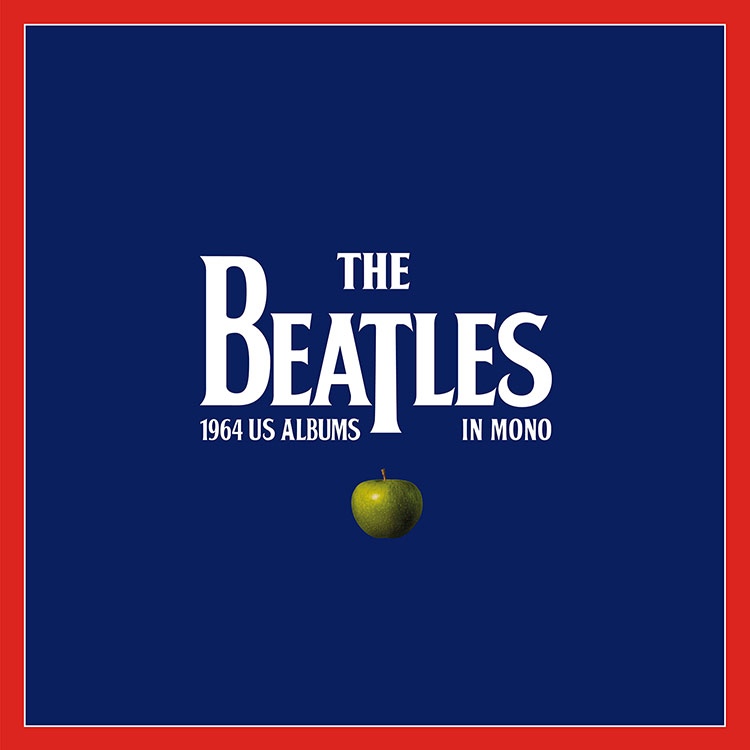
1964 US Albums in Mono The Beatles /
-
-
LP 1: Meet The Beatles!
SIDE ONE
- I Want To Hold Your Hand
- I Saw Her Standing There
- This Boy
- It Won’t Be Long
- All I’ve Got To Do
- All My Loving
SIDE TWO
- Don’t Bother Me
- Little Child
- Till There Was You
- Hold Me Tight
- I Wanna Be Your Man
- Not A Second Time
-
LP 2: The Beatles’ Second Album
SIDE ONE
- Roll Over Beethoven
- Thank You Girl
- You Really Got A Hold On Me
- Devil In Her Heart
- Money (That’s What I Want)
- You Can’t Do That
SIDE TWO
- Long Tall Sally
- I Call Your Name
- Please Mister Postman
- I’ll Get You
- She Loves You
-
LP 3: A Hard Day’s Night (Original Motion Picture Soundtrack)
SIDE ONE
- A Hard Day’s Night
- Tell Me Why
- I’ll Cry Instead
- I Should Have Known Better (Orchestral Instrumental)
- I’m Happy Just To Dance With You
- And I Love Her (Orchestral Instrumental)
SIDE TWO
- I Should Have Known Better
- If I Fell
- And I Love Her
- Ringo’s Theme (This Boy) (Orchestral Instrumental)
- Can’t Buy Me Love
- A Hard Day’s Night (Orchestral Instrumental)
-
LP 4: Something New
SIDE ONE
- I’ll Cry Instead
- Things We Said Today
- Any Time At All
- When I Get Home
- Slow Down
- Matchbox
SIDE TWO
- Tell Me Why
- And I Love Her
- I’m Happy Just To Dance With You
- If I Fell
- Komm, Gib Mir Deine Hand
-
LP 5: The Beatles’ Story
SIDE ONE
- On Stage With The Beatles
- How Beatlemania Began
- Beatlemania In Action
- Man Behind The Beatles – Brian Epstein
- John Lennon
- Who’s A Millionaire?
SIDE TWO
- Beatles Will Be Beatles
- Man Behind The Music – George Martin
- George Harrison
-
LP 6: The Beatles’ Story
SIDE ONE
- A Hard Day’s Night – Their First Movie
- Paul McCartney
- Sneaky Haircuts And More About Paul
SIDE TWO
- The Beatles Look At Life
- Victims’ Of Beatlemania
- Beatle Medley
- Ringo Starr
- Liverpool And All The World!
-
LP 7: Beatles ’65
SIDE ONE
- No Reply
- I’m A Loser
- Baby’s In Black
- Rock And Roll Music
- I’ll Follow The Sun
- Mr. Moonlight
SIDE TWO
- Honey Don’t
- I’ll Be Back
- She’s A Woman
- I Feel Fine
- Everybody’s Trying To Be My Baby
-
LP 8: The Early Beatles
SIDE ONE
- Love Me Do
- Twist And Shout
- Anna (Go To Him)
- Chains
- Boys
- Ask Me Why
SIDE TWO
- Please Please Me
- PS. I Love You
- Baby It’s You
- A Taste Of Honey
- Do You Want To Know A Secret
-
LP 1: Meet The Beatles!
Rowe had every reason to turn down The Beatles. In 1962, guitar music genuinely was on the way out, and the band’s hungover New Year’s day audition did nothing to change his mind. George Martin only signed them to EMI after catching them on good form and being impressed by their personalities. Almost anyone would have turned down The Beatles based on their Decca audition. Rowe subsequently redeemed himself by signing the Stones, the Small Faces and Tom Jones.

 Reviews
Reviews
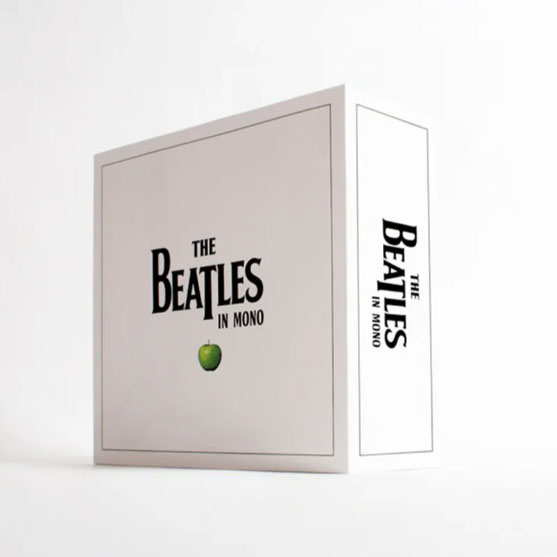

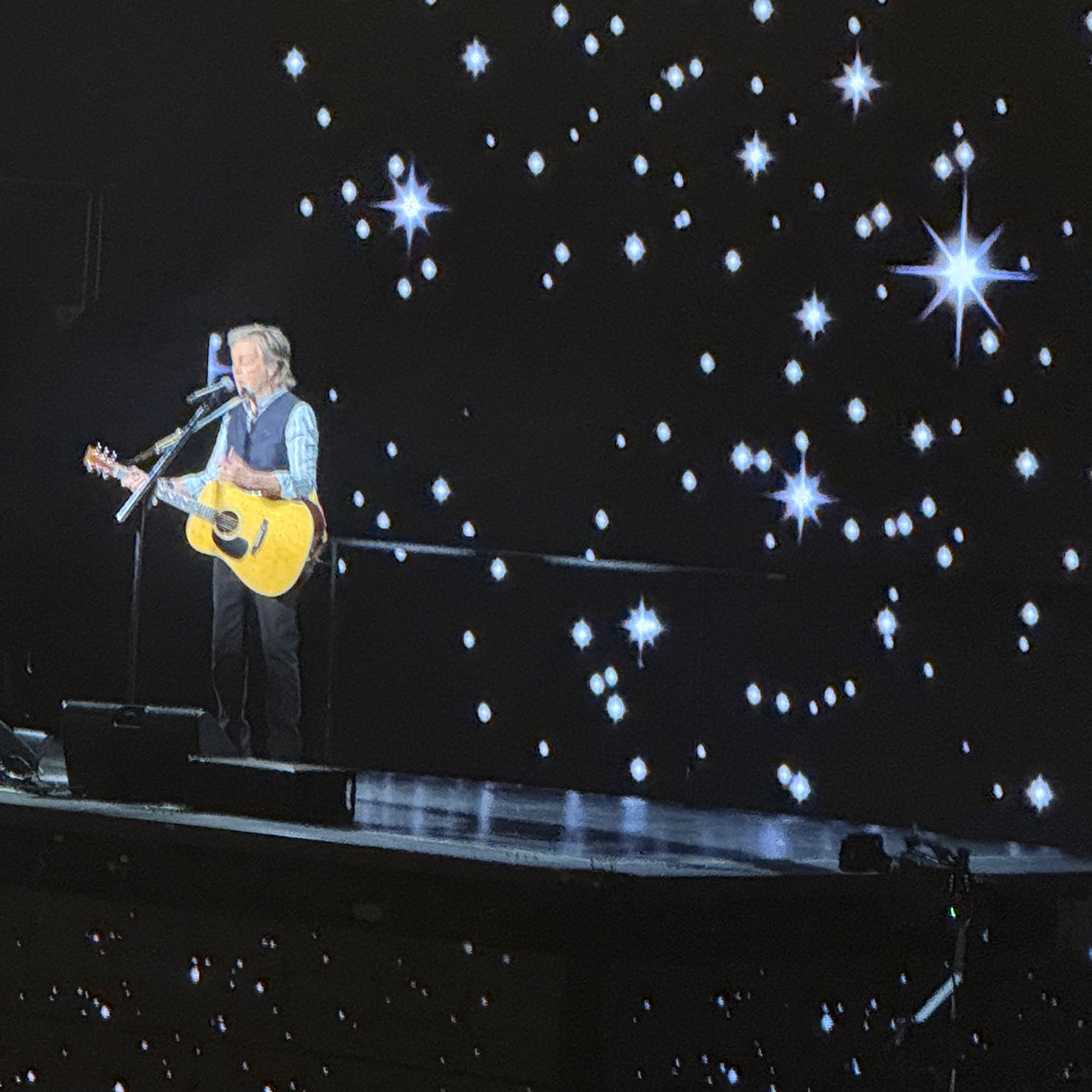

By Marc Burrows
59